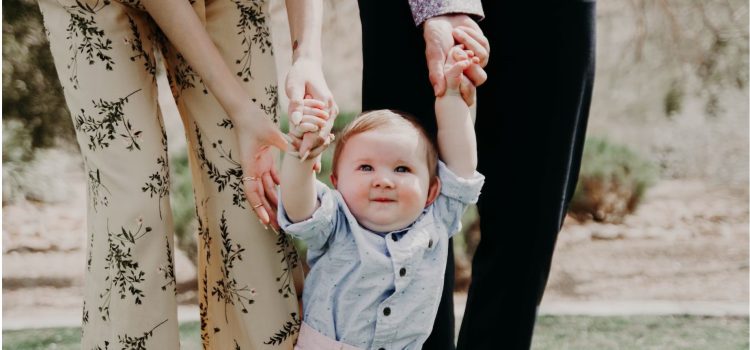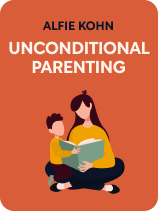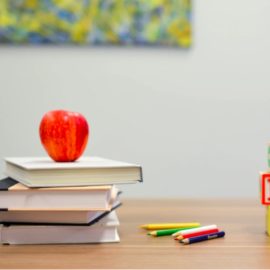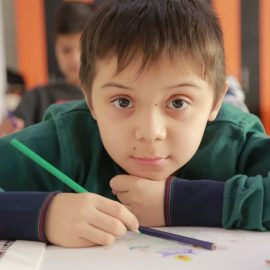

This article is an excerpt from the Shortform book guide to "Unconditional Parenting" by Alfie Kohn. Shortform has the world's best summaries and analyses of books you should be reading.
Like this article? Sign up for a free trial here .
Why is promoting independence in early childhood important? What are some effective ways to promote independence?
Author Alfie Kohn created his unconditional parenting technique to teach parents how unconditional acceptance leads to more emotionally stable children. While this technique is more demanding than traditional parenting, Kohn says your investment will promote independence in early childhood.
Read on to learn Kohn’s two ways to promote independence in early childhood.
Benefits of Promoting Independence in Early Childhood
Alfie Kohn is the author of 14 books, most of which focus on education and parenting. In Unconditional Parenting, he argues that most of us have learned to parent in a “conditional” way: That is, we make our children believe that we only love them when they do what we want.
Unconditional Parenting, published in 2005, was an early contribution to the popular “gentle parenting” movement: a set of loosely associated approaches that move away from traditional discipline methods. Advocates for gentle parenting argue that it promotes independence in early childhood by:
- Fostering autonomy
- Developing stronger parent-child bonds
- Building children’s internal motivation
#1: Control the Environment
To promote independence in early childhood, Kohn recommends structuring your child’s environment so it sets him up for success. For example, it’s more effective to set up a barrier between the child and any dangerous objects than to continually tell them “no” or move him away. For a small child, this could look like moving breakable objects to higher shelves. If you’re going to leave the house to do something that you know will be boring for your child, bring along some toys or books that will keep him occupied.
This guideline applies to time, too: It’s a universal rule of parenting that the tighter the timeframe, the longer the child will take to get ready. Whenever you can, allot more time to activities than you think you’ll need. Doing this also helps you to keep your cool.
| Control the Environment, Not the Child: The “Yes Space” Technique Janet Lansbury recommends setting up a “yes space” for your child to promote independence in early childhood. Yes spaces are places that are totally secure—they’re set up so that the child can do whatever she wants inside the space without putting herself in danger (or hearing the word “no”). For younger children, a yes space can be a crib or playpen; for older children, you can set up their whole room this way. Experiencing periods when they don’t constantly hear “no” promotes a longer attention span, gives more freedom, and helps kids practice independence in early childhood. |
#2: Avoid Intervening
According to Kohn, most parents are too quick to meddle in their child’s activities, which won’t promote independence in early childhood. To help your child build autonomy, let them sort things out for themselves as much as possible—even if it means sitting on your hands or biting your tongue. (Of course, this doesn’t apply if the child is in immediate danger.) Whenever you’re about to ask a child to do something, pause and consider whether it’s really important. If it’s not, keep quiet.
Kohn suggests that instead of constantly telling children what to do, you should foster autonomy by offering choices and asking questions. To promote independence in early childhood, let children make their own decisions whenever possible, even if this occasionally makes you feel uncomfortable.
| Avoid Intervening: The Counting and Sportscasting Techniques Avoiding intervention is a cornerstone of the Montessori approach. Maria Montessori believed that children learn best from noticing the effects of their actions on the environment and that the job of the parent is to “remain a quiet observer of all that happens.” Montessori apparently carried around a string of rosary beads that she would count whenever she felt tempted to intervene. You don’t have to carry a string of beads, but consider counting to 10 when you’re tempted to interfere—by the time you get to 10, there might not be any need to. An alternative approach, and one that’s especially helpful when children are feeling angry or frustrated, is “sportscasting.” Popularized by Janet Lansbury, sportscasting is putting neutral words to what children are doing and feeling. Instead of rushing in to comfort or help a child, a sportscasting parent might say: “Your block tower fell down again. You look disappointed.” Lansbury notes that this technique is especially helpful when there’s conflict between children, as it often spurs them to work out the conflict themselves. |

———End of Preview———
Like what you just read? Read the rest of the world's best book summary and analysis of Alfie Kohn's "Unconditional Parenting" at Shortform .
Here's what you'll find in our full Unconditional Parenting summary :
- How to raise kids to be self-confident, independent, and compassionate
- Why you should throw away the standard parenting rulebook
- Why rewards and punishments cause more harm than good






